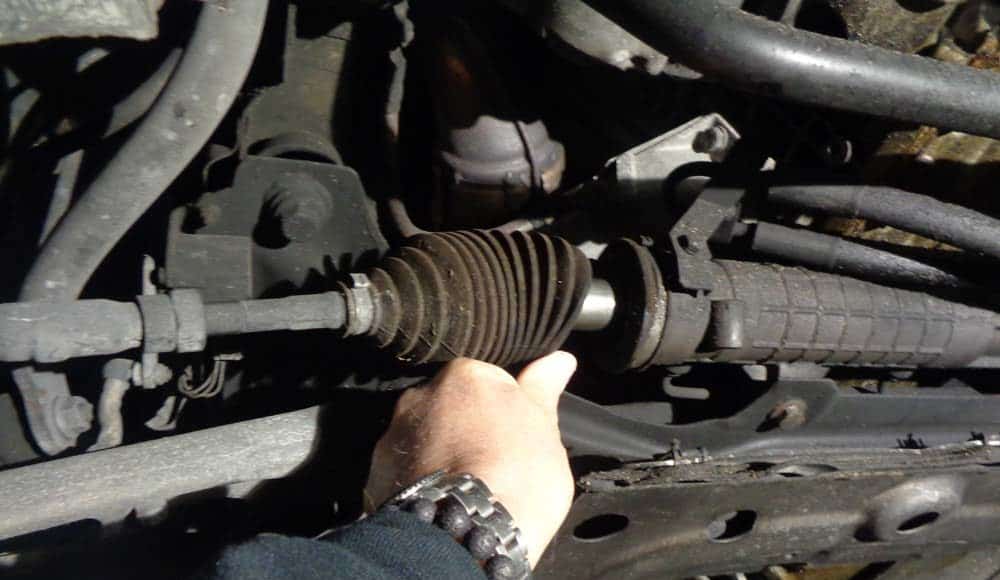Affiliate link disclosure – The BMW Repair Guide uses affiliate links in their site. For more information on affiliate links, please click here.
Repair Summary
The following article provides detailed instructions on replacing the tie rods in a BMW E46 3 series car. Even though we have used a 2003 BMW 325ci to perform this installation, this article can be applied to any E46 3 series vehicle, including the 323i, 328i, and 330i coupe, sedan, and convertible.
See all vehicles this article applies to
E46 3 Series 325ti
E46 3 Series 318td
E46 3 Series 320td
E46 3 Series 318ti
E46 3 Series 330xi
E46 3 Series 330i
E46 3 Series 330xd
E46 3 Series 330d
E46 3 Series 316ti
E46 3 Series 328i
E46 3 Series 325xi
E46 3 Series 325i
E46 3 Series 320i
E46 3 Series 323i
E46 3 Series 320d
E46 3 Series 318i
E46 3 Series 318d
E46 3 Series 316i
E46 3 Series M3 CSL
E46 3 Series M3
E46 3 Series 330Ci
E46 3 Series 330Cd
E46 3 Series 325Ci
E46 3 Series 323Ci
E46 3 Series 320Ci
E46 3 Series 320Cd
E46 3 Series 318Ci
E46 3 Series 328Ci
E46 3 Series 316Ci
E46 3 Series 323i 2.4
E46 3 Series 316i 1.9
E46 3 Series 316i 1.6
A BMW E46 tie rod repair and boot replacement will help fix alignment issues, front-end shake, and unevenly worn tires.
Let's face it...your BMW E46 3 series front suspension takes a beating. Unless you are a tea toddling Sunday driver, you most likely have put a lot of stress on your frame and suspension components over the years, especially if your vehicle is pushing 100,000 plus miles.
One of the most frequent repairs to the front suspension on a BMW E46 3 series is replacing torn steering rack boots. The rubber boots must be immediately replaced when compromised to prevent dirt and grime from getting into the steering rack system and causing an expensive failure. Since the steering boots can only be replaced by removing the vehicle's tie rods, the BMW Repair Guide strongly recommends replacing the tie rods with the boots.
Worn tie rods produce a number of issues including front-end shake and rattle, poor front-end alignment (car pulling to one side or the other), and uneven or prematurely worn tires.
Please note that it is required that you take your vehicle to a tire installation shop to have the front wheels aligned after completing this repair. The steps below will get the front end close to its original alignment, but specialized equipment will probably be necessary to get it exact.


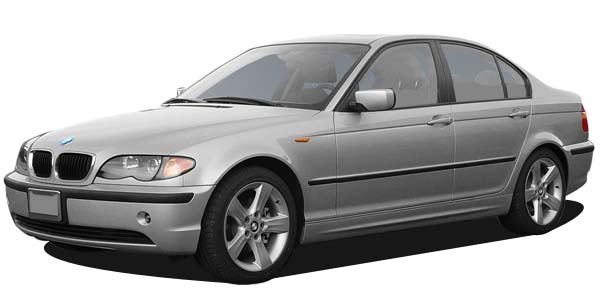
View the detailed parts diagram for this repair.
Includes detailed part diagrams, part numbers and links to purchase all of the required components needed to complete this repair.

Before starting this repair, you must have the following required parts.
All E46 Models
The tie rods in your vehicle translate the movement of the steering wheel through the rack and to your wheels. Oftentimes when a vehicle is beginning to experience some higher mileage, the tie rod ends begin to fail. This causes slop in the steering wheel and knocks and creaks in the steering system. Catastrophic tie rod end failure can cause serious damage and danger as the tie rod end keeps the wheel path straight. Includes complete left and right tie rod assemblies, hardware and new boots.
All BMW E46 vehicles (except M3) - Left side only
The tie rods in your vehicle translate the movement of the steering wheel through the rack and to your wheels. Often when a vehicle is beginning to experience some higher mileage, the tie rod ends begin to fail. This causes slop in the steering wheel and knocks and creaks in the steering system. Catastrophic tie rod end failure can cause serious damage and danger as the tie rod end keeps the wheel path straight.
All BMW E46 vehicles (except M3) - Right side only
The tie rods in your vehicle translate the movement of the steering wheel through the rack and to your wheels. Often when a vehicle is beginning to experience some higher mileage, the tie rod ends begin to fail. This causes slop in the steering wheel and knocks and creaks in the steering system. Catastrophic tie rod end failure can cause serious damage and danger as the tie rod end keeps the wheel path straight.
All BMW E46 vehicles
Over time these boot dry out and crack, allowing dirt and rock to enter into the inner tie rod area. Replace them before debris damages your steering rack.
Section 1 - Removing the BMW E46 Tie Rod
- Jack and support your vehicle using the “four corners” wheel stand method. Please click here to learn how to properly jack and support your vehicle for this repair.
- Use an 18mm socket and wrench to remove the outer tie rod ball joint nut.
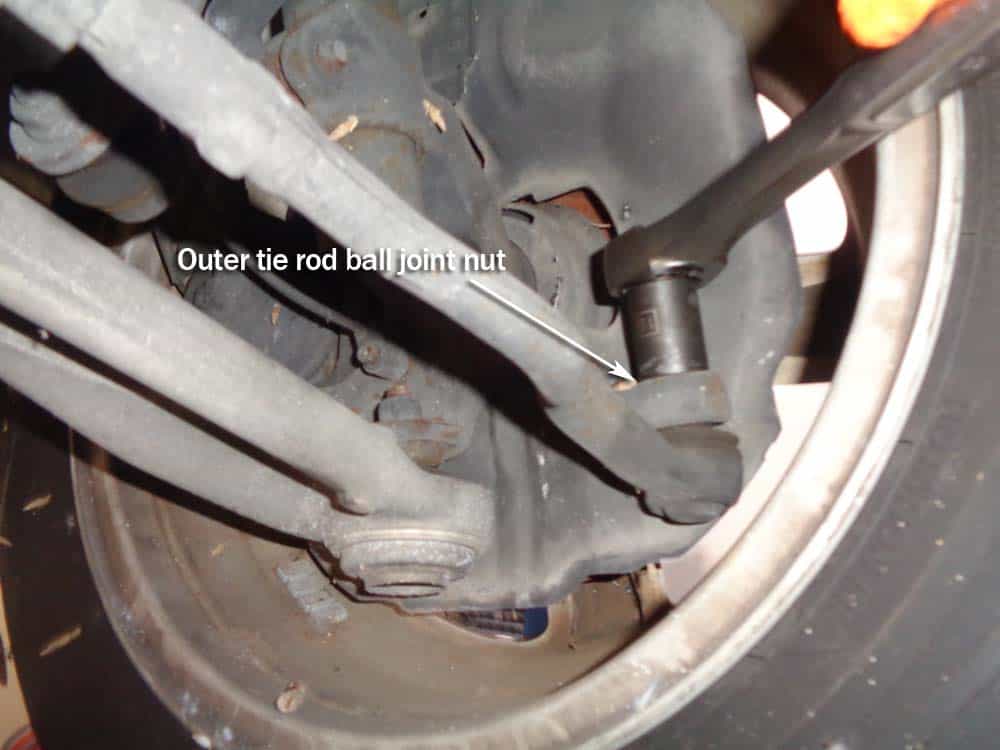
- Use a ball joint separator and a 4lb sledgehammer to remove the tie rod ball joint from the steering arm. This can prove to be a tedious process...especially if the ball joint is stuck. If the ball joint is stuck and can't be removed from the steering arm, try spraying liberally with Blaster PB (or equivalent) and let soak in thoroughly. Hammer the sides of the ball joint and the top of the outer tie rod to try and pop it out of the steering arm. It may take a lot of patience and time, but eventually, the ball joint will release and pop out.
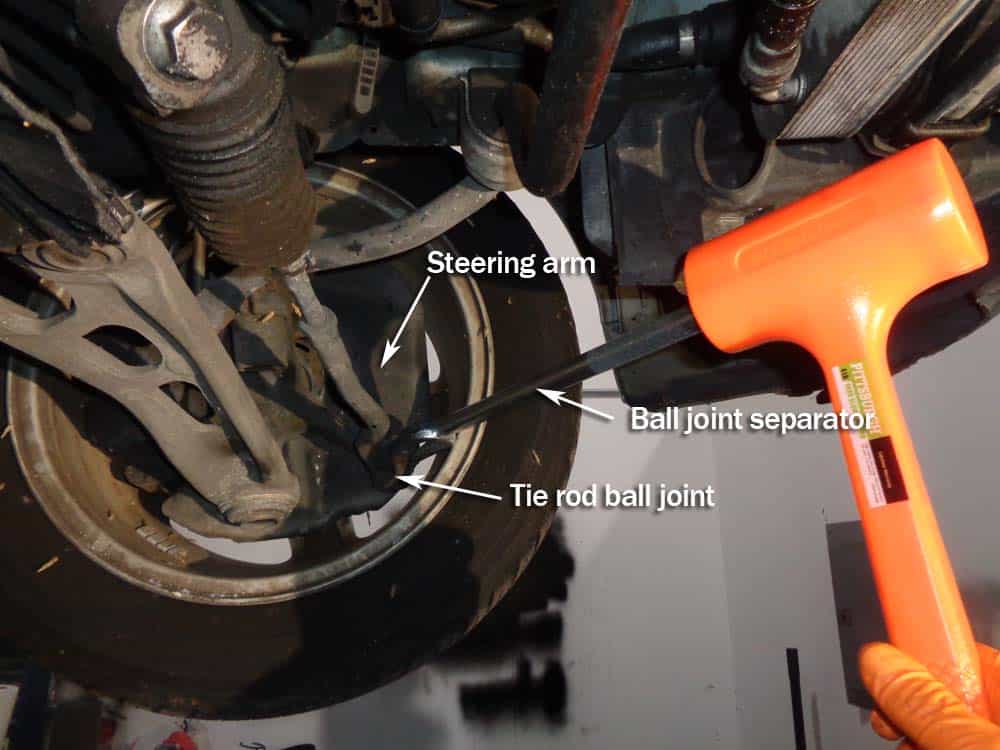
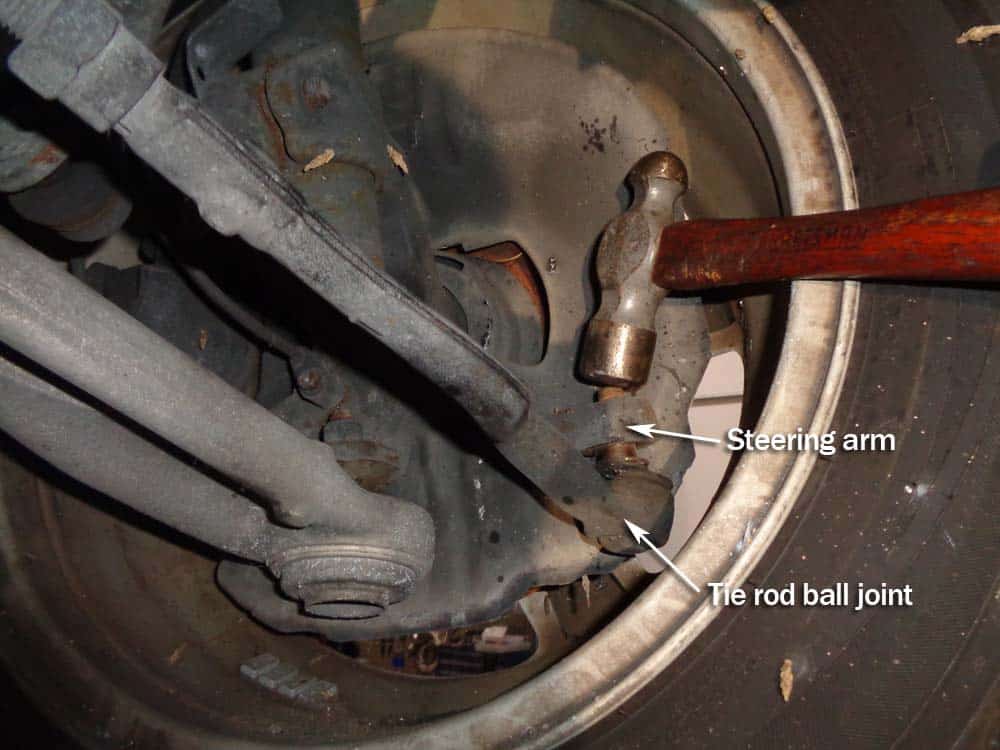
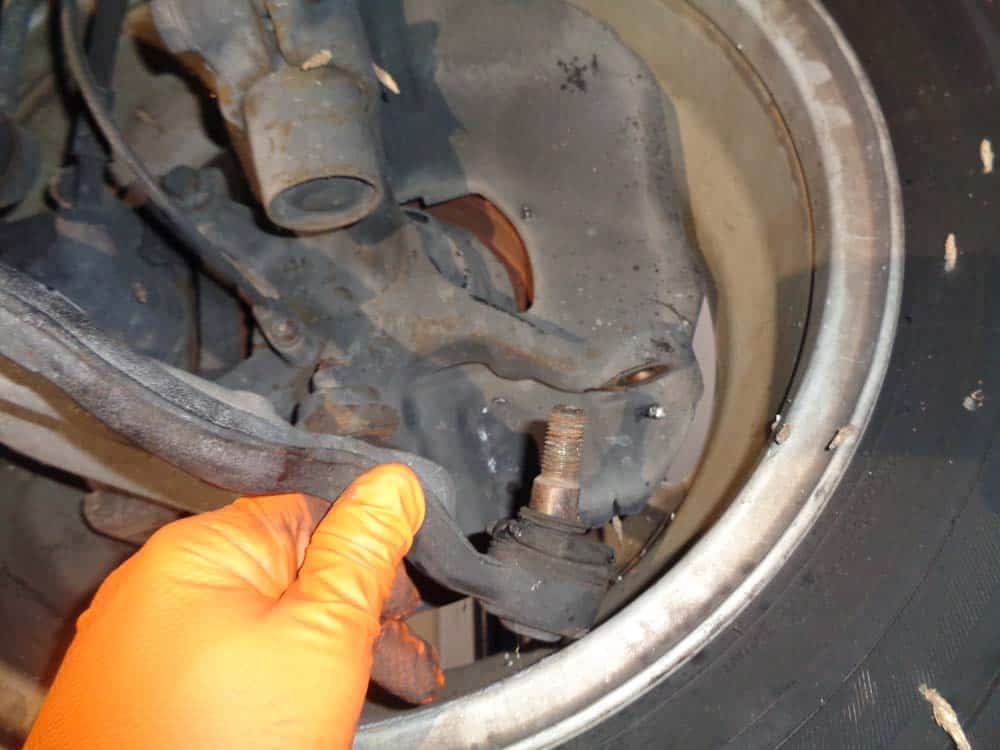
- Using a utility knife, cut away the old steering rack boot exposing the end of the inner tie rod.
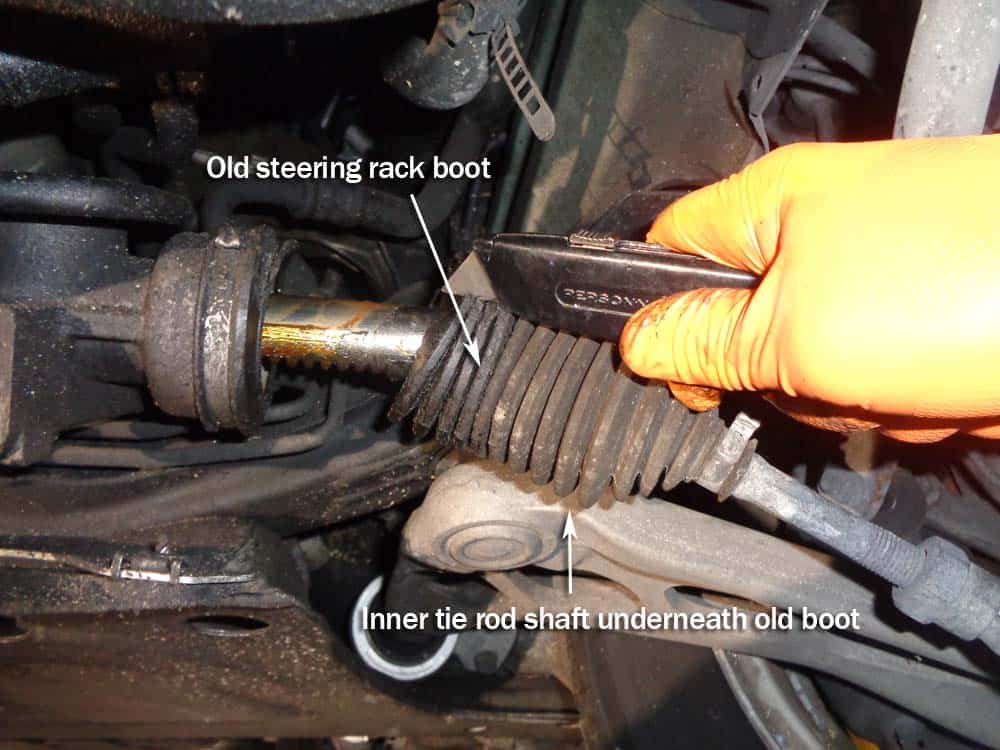
- Use a 12" adjustable wrench to remove the inner tie rod shaft from the steering rack.
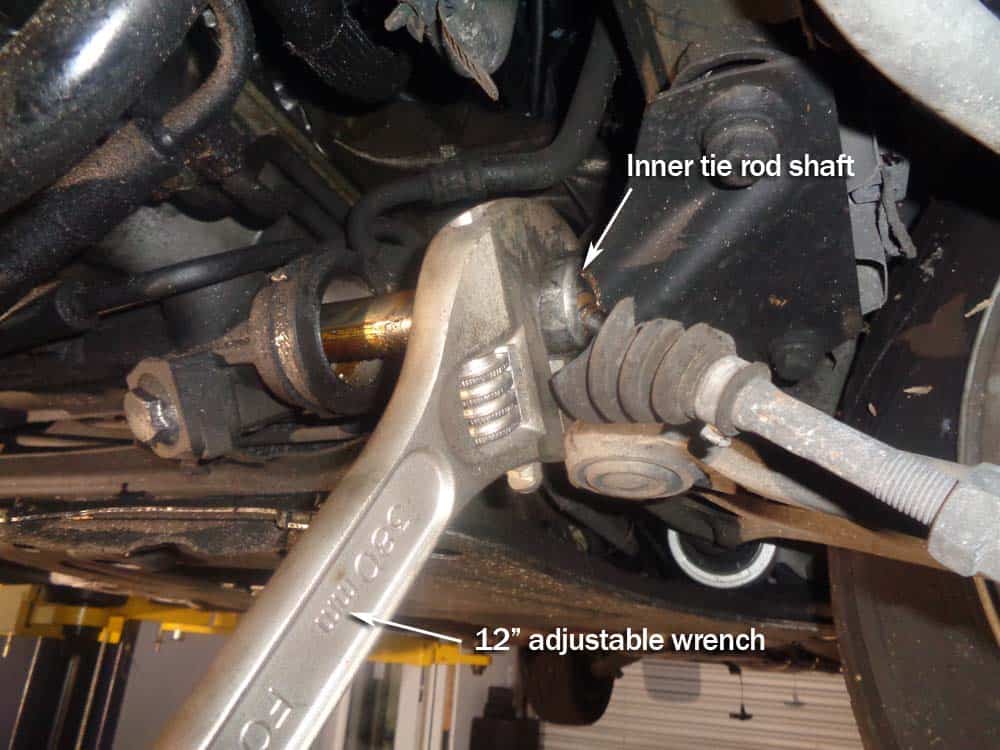
- Using a pair of cutting pliers, remove the rest of the old steering boot attached to the steering rack.
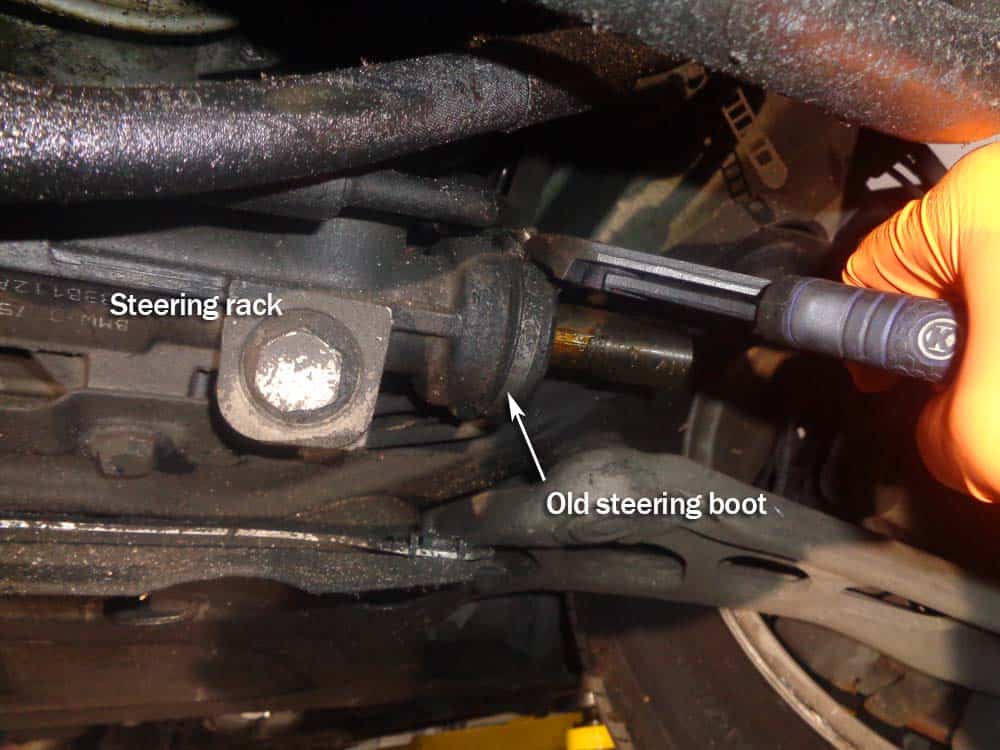
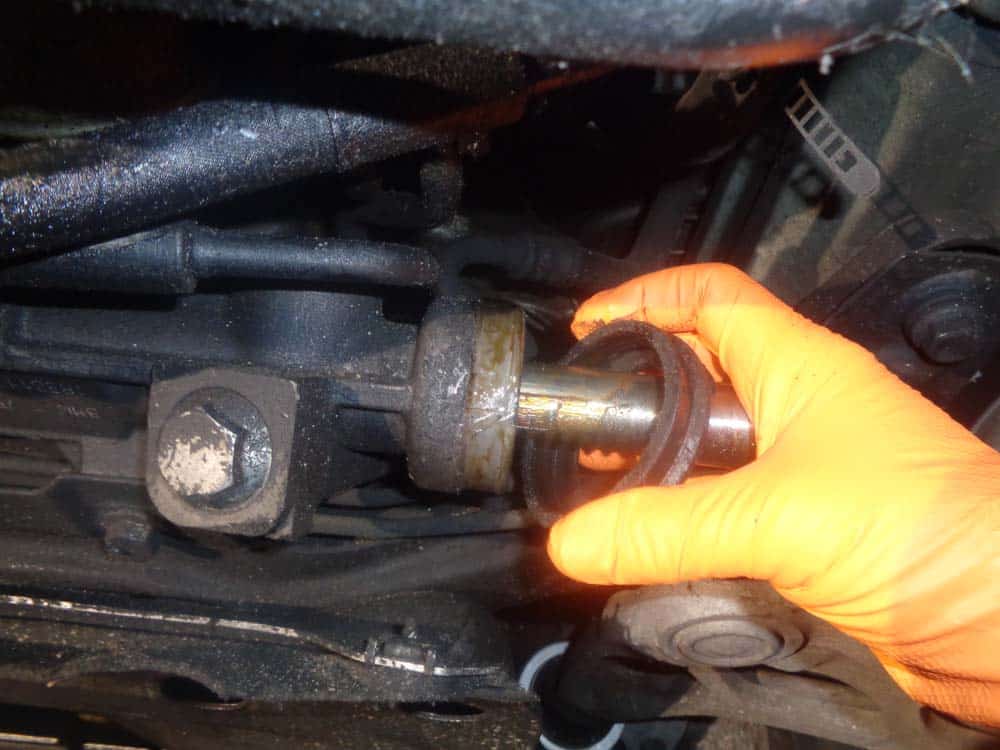
Section 2 - Installing the New BMW E46 Tie Rod
- Lay the old tie rod on a bench. You will need to take a measurement from the center-line of the ball joint to the edge of the steering boot (point A as shown below). Write down this measurement...you will need to use the same measurement when setting up the new tie rod. The reason why we do this is to try and match the existing front-end alignment of your vehicle as close as possible...if the measurement is off, your car may pull severely to the right or left after completing the repair. ***Note - This procedure only gets your alignment close to its correct position. You will most likely still need to have the vehicle professionally aligned after the repair.
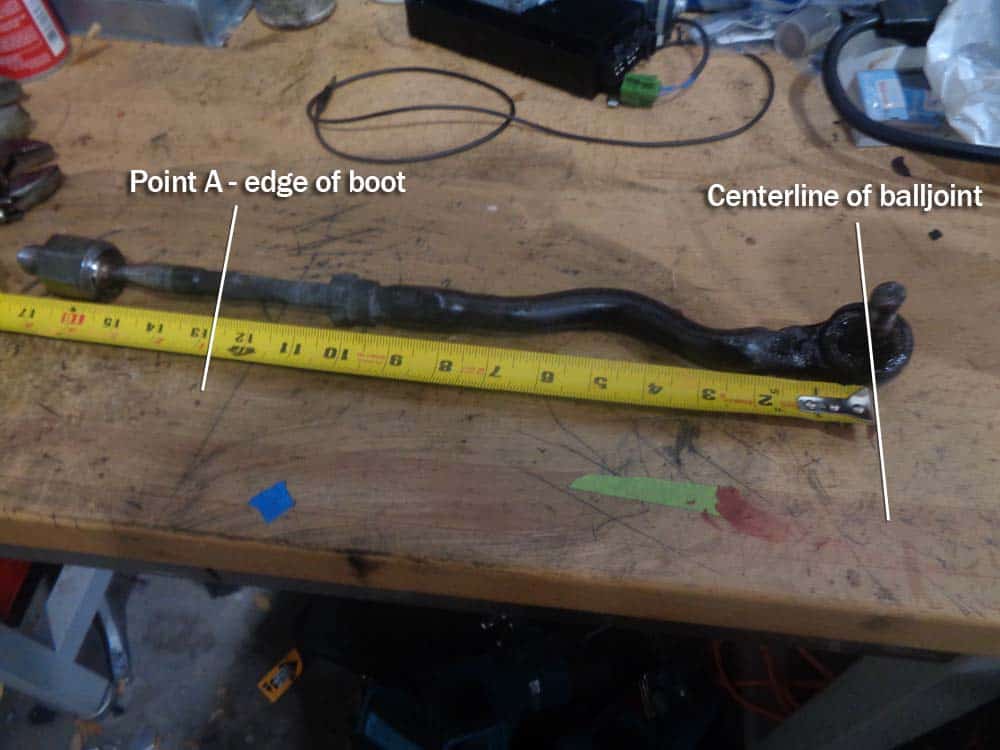
- Use a clean rag and thoroughly clean out the inside of the steering rack.
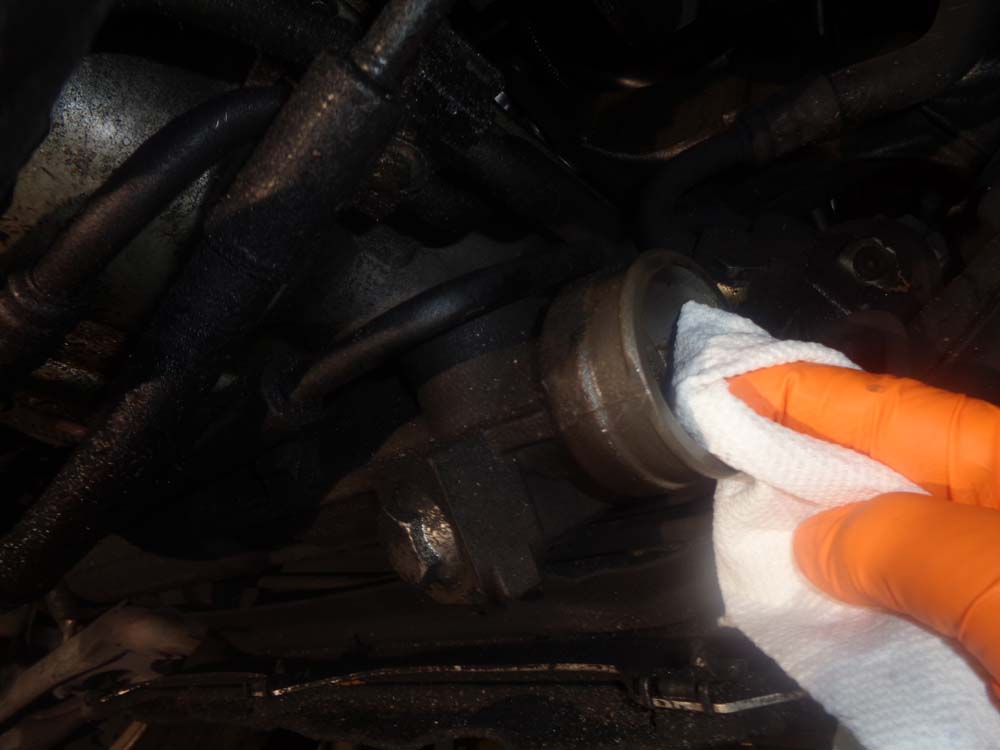
- Mount the new interior tie rod to the steering rack and tighten with an adjustable wrench. Do not install the locking nut or locking ring yet.
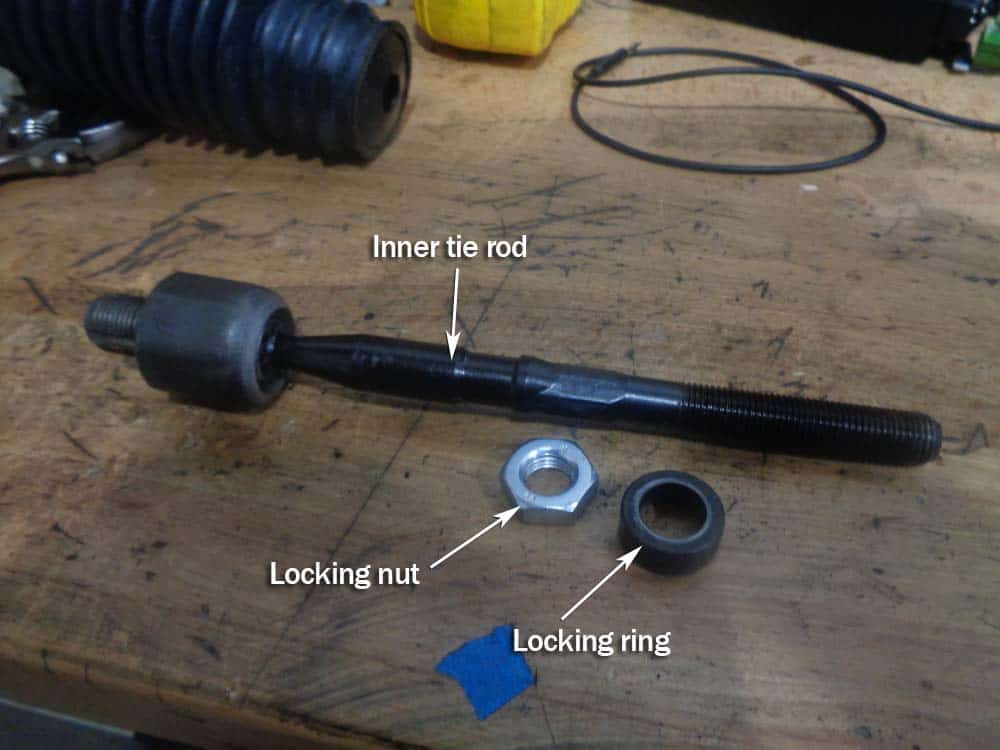
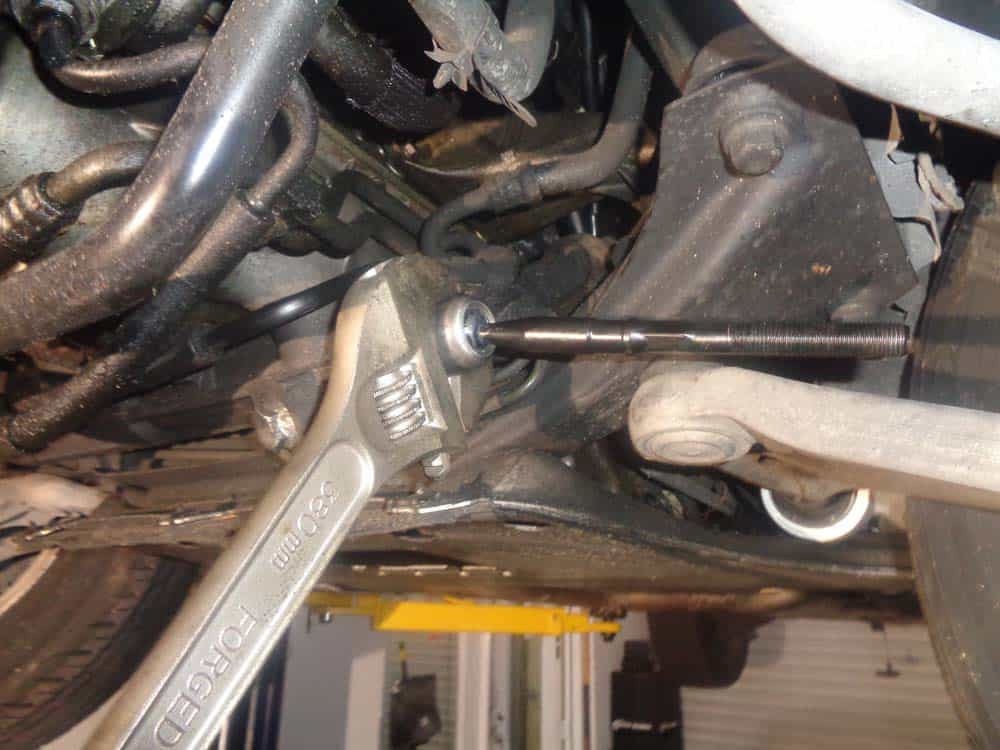
- Use a good quality grease on the inner tie rod ball joint.
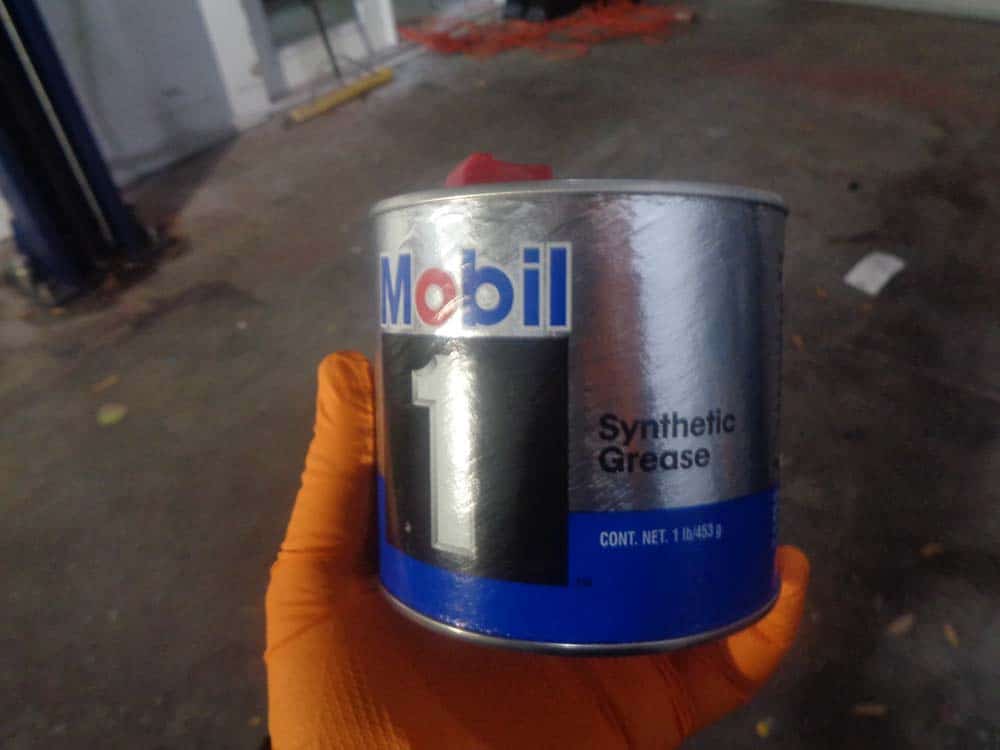
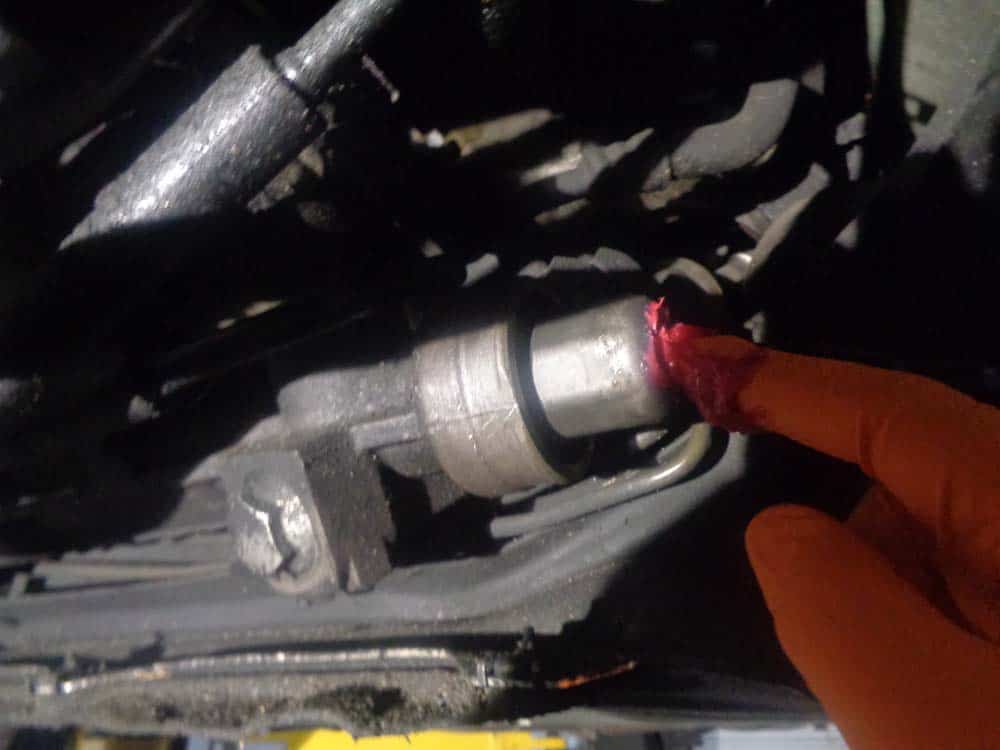
- Prepare the steering boot for installation by inserting the plastic reducer into the end of the boot.
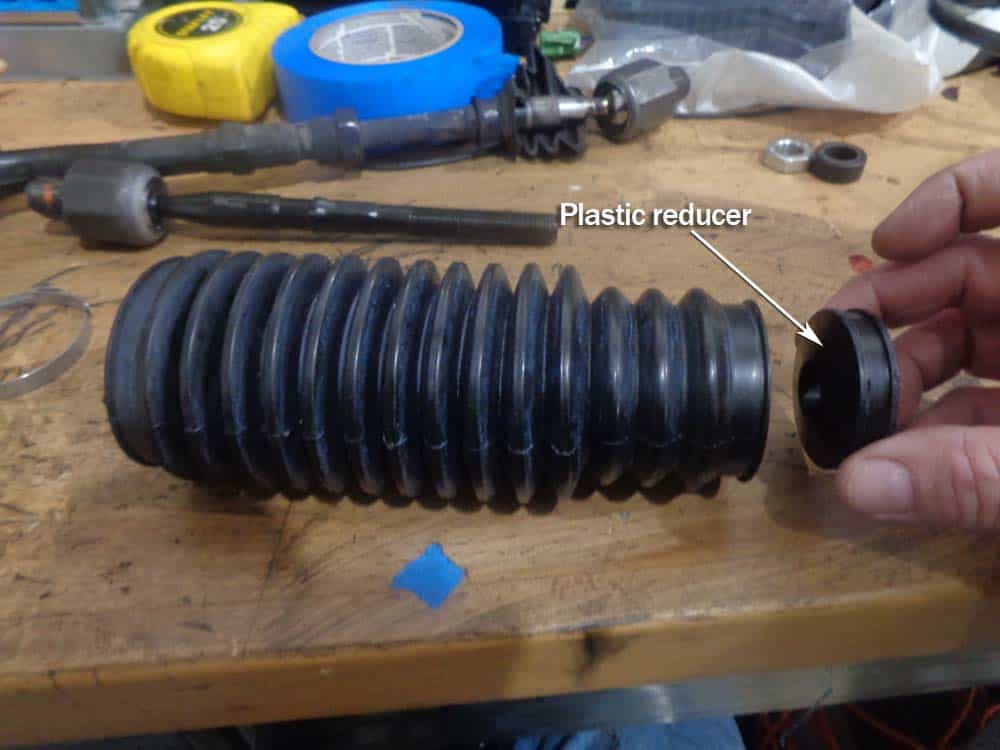
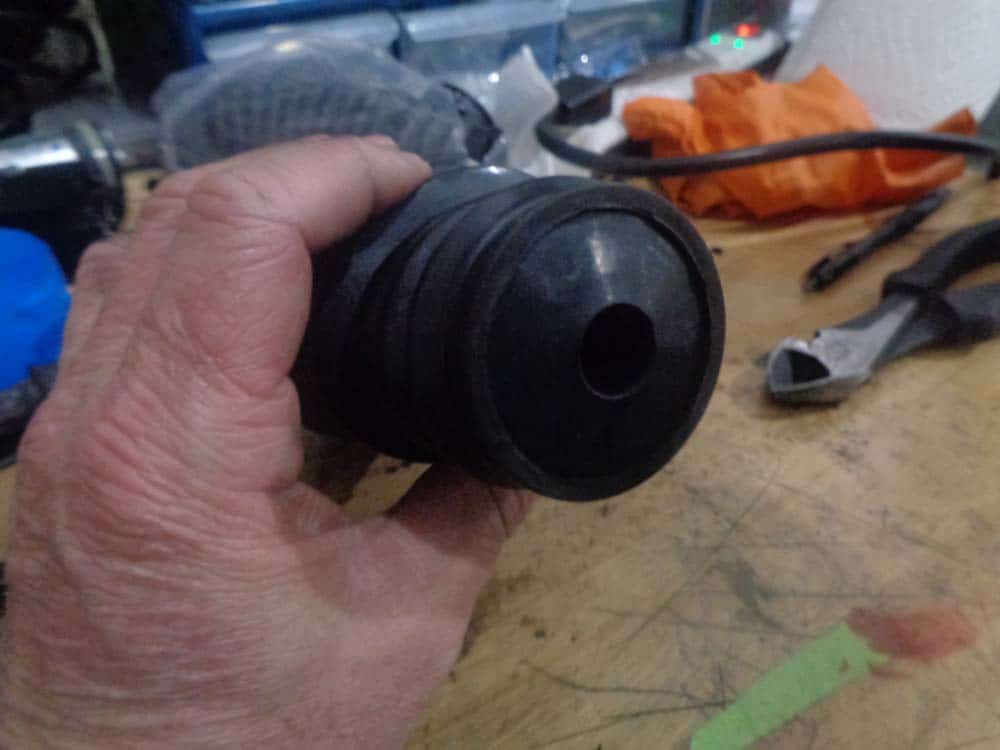
- The rubber boot comes with "push-lock" or "ear type" hose clamps that require a special tool to install. We have found these to be extremely difficult to install on the steering boots...they tend to slip off the boot when tightening. Here at the BMW Repair Guide, we use standard #28 and #40 steel hose clamps (available at any home improvement store) in place of the ear-type clamps. They are wider and easier to install than ear-type clamps. If you decide you want to use the "factory look" ear-type clamps, you will need a special tool to install them.
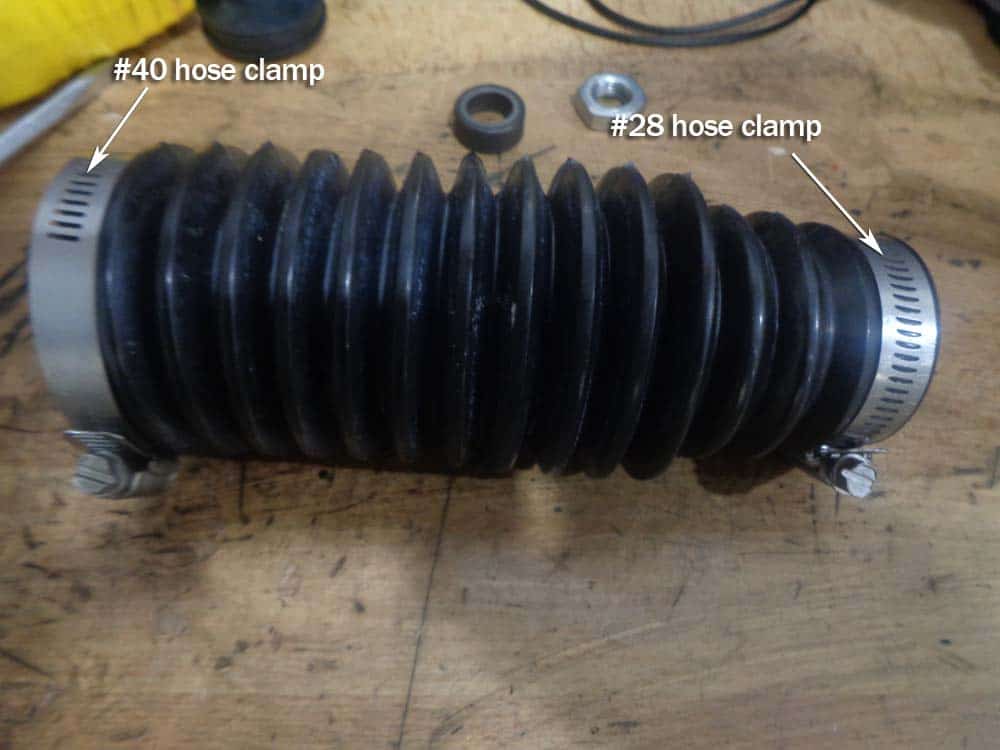
- Slide the steering boot onto the inner tie rod as shown below. Carefully tighten the hose clamps until they are secure. ***The boot will have a tendency to slide out of the clamp when tightening. Use your other hand to hold the clamp in place when turning the hose clamp screws. This will prevent the clamps from sliding off the boot.
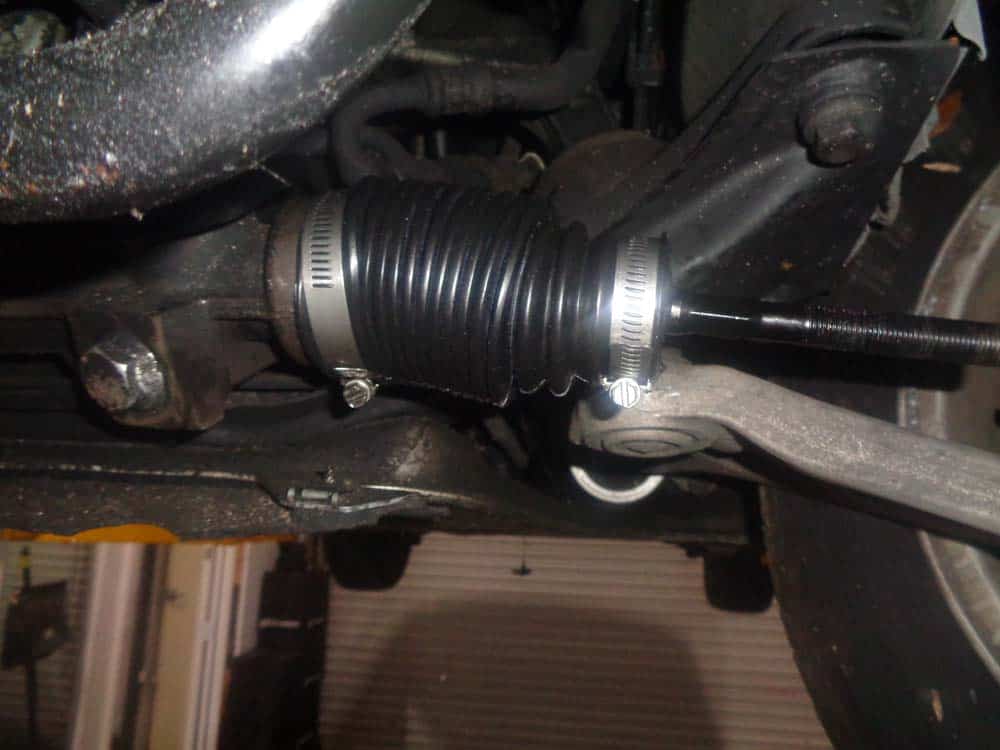
- Install locking nut, locking ring, and outer tie rod to inner tie rod. Use a measuring tape to EXACTLY match the dimensions of the old tie rod taken in step 6.
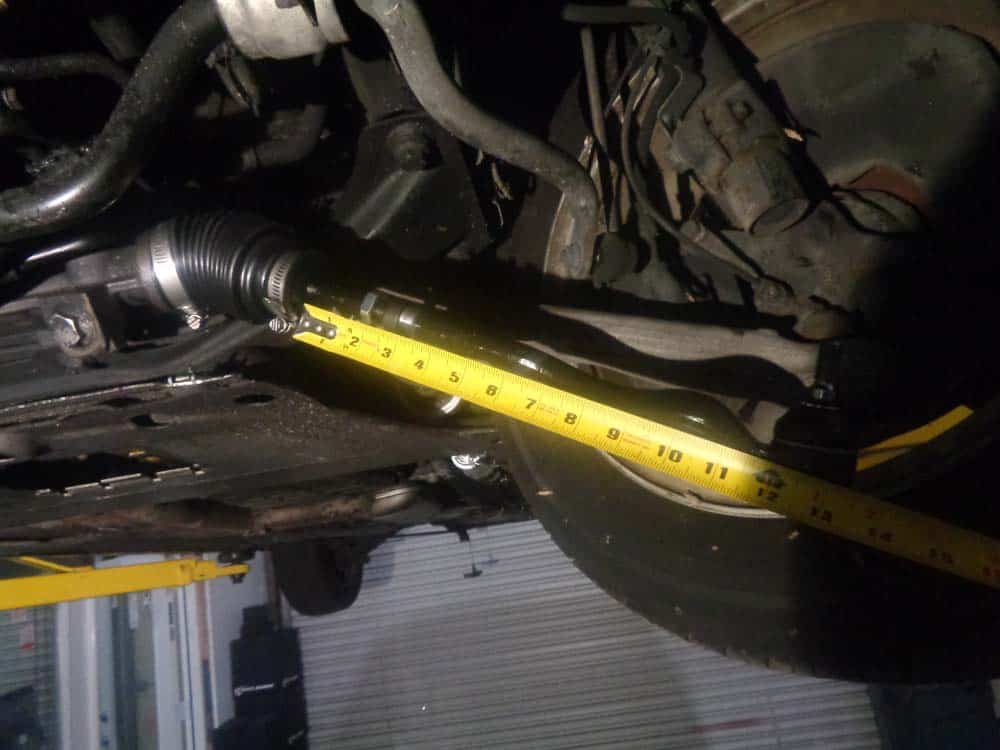
- Insert outer tie rod ball joint back into the steering arm and screw on locking nut hand tight. Use a torque wrench to torque nut to 65 Nm (48 ft-lb).
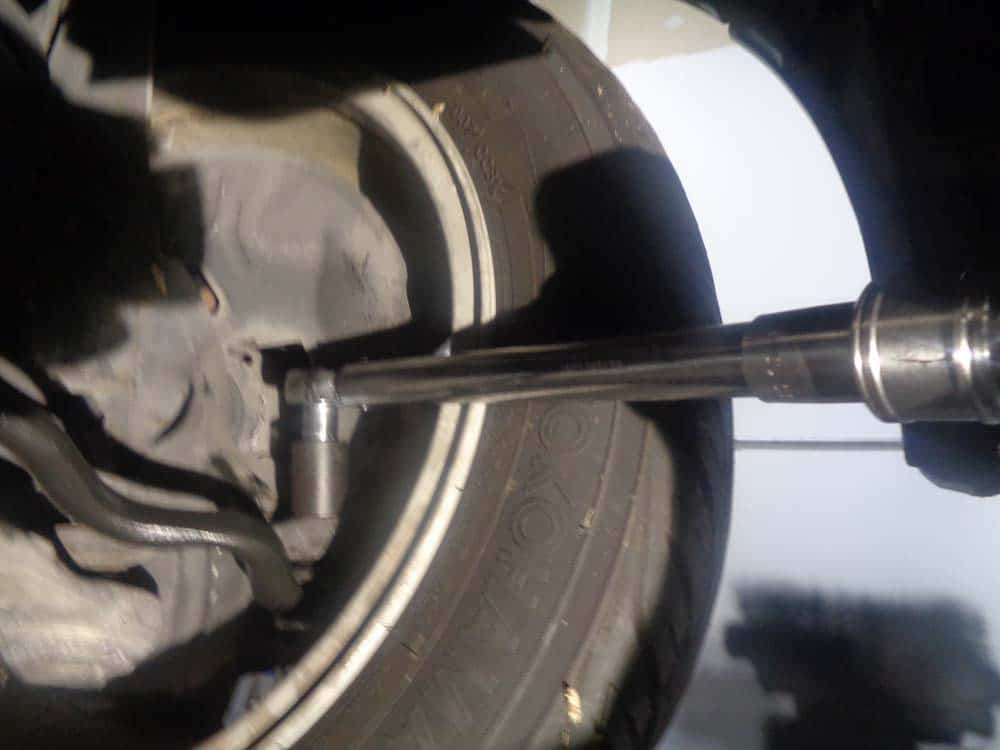
- Firmly tighten locking nut against locking ring.
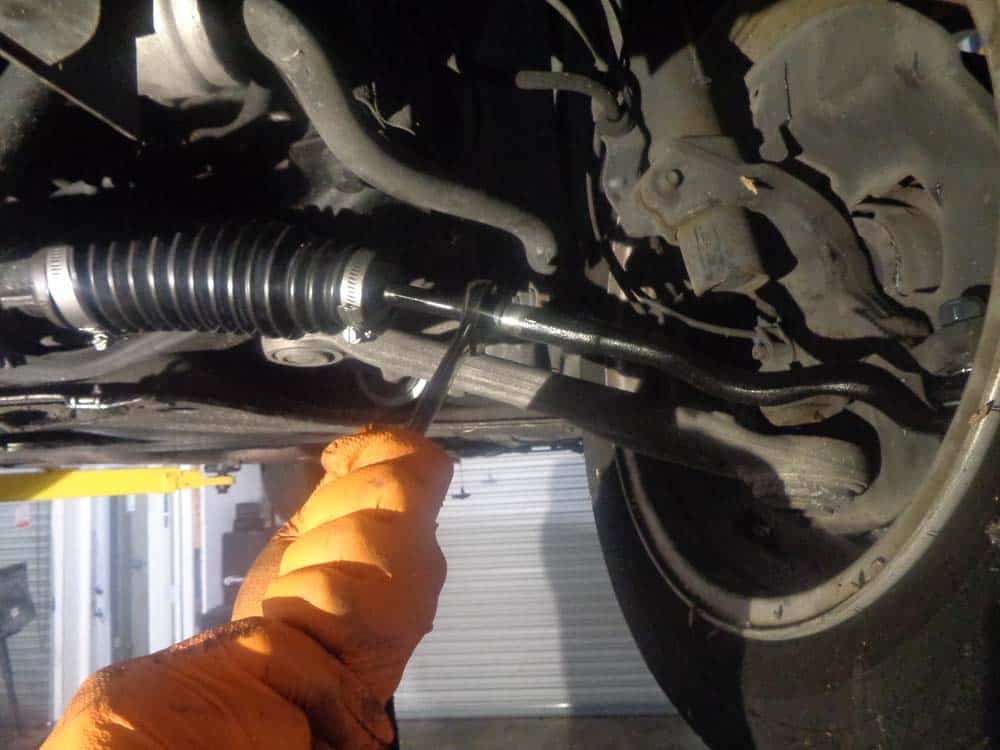
- Take the car for a test drive and check the alignment. If the car is "pulling" to either side with your hands off of the steering wheel, then you will have to take it to a local tire shop and have the front end aligned.
BMW E46 Tie Rod Repair Finished

